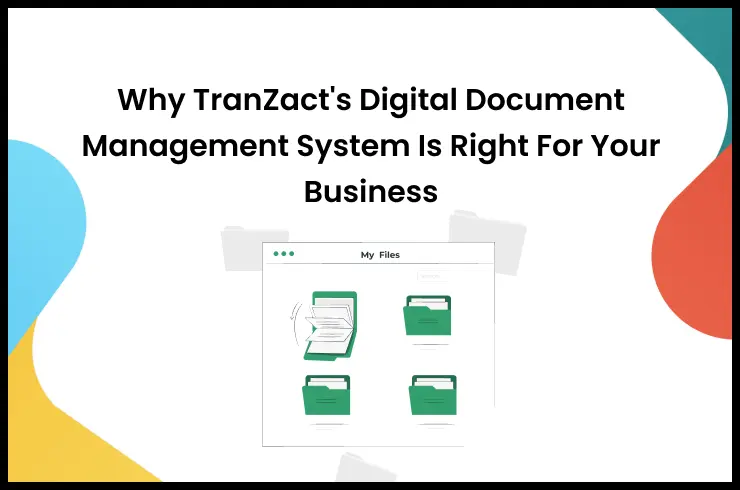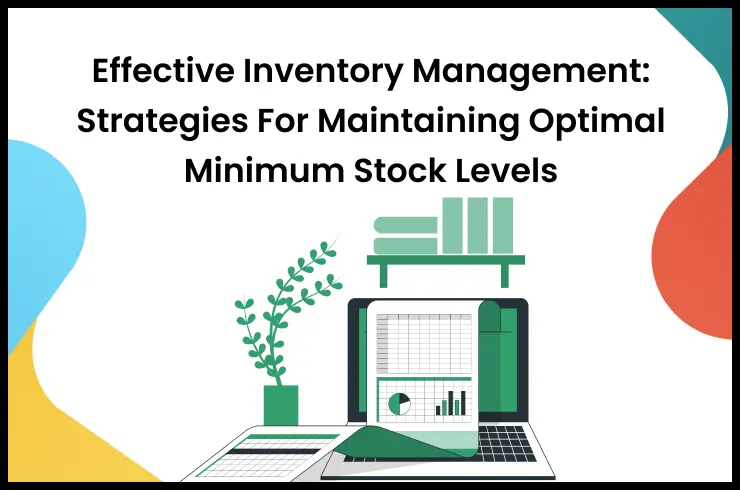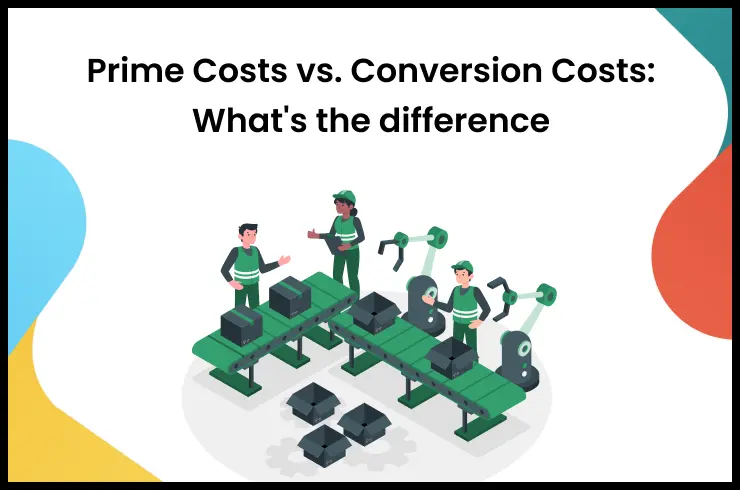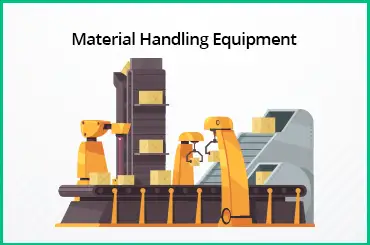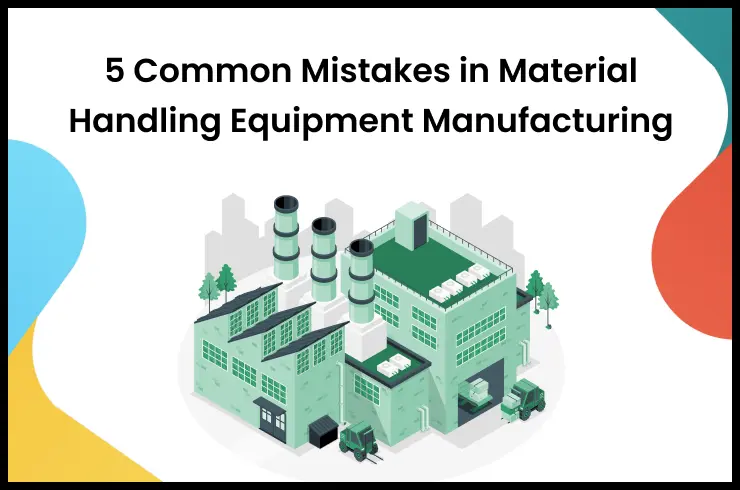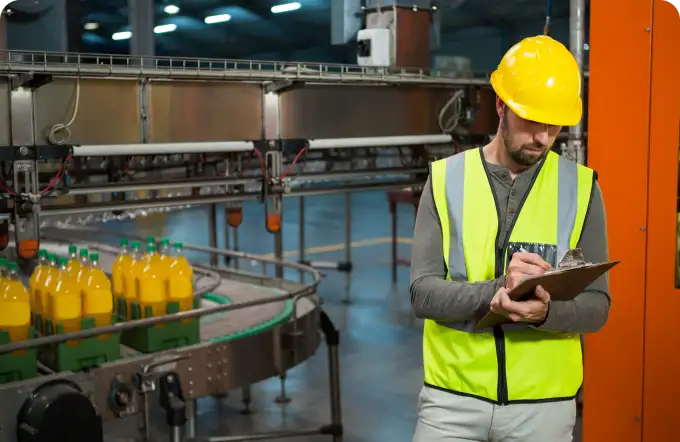Manufacturing industries have reached new heights with Industry 4.0. Whether it is planning, production, distribution, or communication, 4th industrial revolution has made everything faster, simpler, and more efficient. In this blog post, we will learn how industry 4.0 is helping transform manufacturing businesses, and industry 4.0 technologies you can adopt to increase the productivity of your manufacturing business.
What Is Industry 4.0?
Industry 4.0 is the use of advanced technologies to improve manufacturing operations and increase the productivity of businesses. These advanced technologies include the Internet of Things (IoT), Artificial Intelligence (AI), Cloud Computing, Machine Learning (ML), Robotics, Big Data and Analytics, and more. Industry 4.0 solutions are available for everyone, whether you own a large or small manufacturing industry. It contributes to easing operations and increasing manufacturers' profits.
The Evolution Of Industrial Revolutions: From Industry 1.0 To Industry 4.0
Let’s learn more about the industry revolution history from 1.0 to 4.0. Know how it has transformed the SMEs around the world and their manufacturing process.
Industry 1.0
The Industrial Revolution 1.0 began in the late 18th century when steam engines were used by the manufacturing industries. Before that, all manufacturing operations were handled by humans, and animals were also used for some tasks. Steam engines allowed manufacturers to increase production rates, and it was called the Industrial Revolution 1.0.
Industry 2.0
Manufacturing industries experienced the second revolution, also known as Industry 2.0, in the late 19th century. This happened because of the introduction of electricity, oil, and gas for manufacturing purposes. It improved manufacturing operations management as industries established assembly lines, and mass production started in this era.
Industry 3.0
The third Industrial Revolution, or Industry 3.0, started in the middle of the 20th century when computers were introduced to the manufacturing industries. Industry experienced digitalisation manufacturing in this era. Manufacturers started using programmable logic controllers, where robotics and automation improved manufacturing process management.
Industry 4.0
Manufacturing industries are currently experiencing the fourth industrial revolution, or Industrial Revolution 4.0. Technologies have become more advanced nowadays, and many software applications are available to manage all manufacturing processes. For example, cloud-based software allows manufacturers to manage tasks and run their businesses from any location at a low infrastructure cost.
Automation tools like inventory management software, purchase order software, production planning software, and ERP software help businesses increase efficiency and productivity.
How Industry 4.0 Is Applied In Manufacturing Processes?
Industrial Revolution 4.0 introduced many smart factories that manufacturers can apply from start to finish in manufacturing processes for different types of products.
Here is how smart Manufacturing Industry 4.0 applies to ease manufacturing operations.
- To analyze market trends and customer orders for demand forecasting.
- To monitor stock levels to avoid stockouts and overstocking.
- To create MRP reports for improved production planning.
- To speed up repetitive tasks in the production line.
- To check the quality of the products in the assembly line in real time.
- To monitor machines and equipment for preventive maintenance.
- To improve communication between departments, suppliers, and customers.
Impact Of Industry 4.0 On Manufacturing Operations
An ecosystem following Industry 4.0 includes improving product quality, simplifying document management, speeding up the approval process, improving supplier relationships, and customer satisfaction. Here are the details of the impact of Industrial Revolution 4.0.
1. Improve Flexibility
It allows businesses to increase or decrease production rates in real time. If you get rush orders, you can modify your production process in real-time to improve your order management. It also allows you to access your data from different locations, manage operations, and run your business without interruption.
2. Improve Communication
Communicating with different departments, suppliers, and workers is important to avoid disruptions and increase efficiency. Digital transformation Industry 4.0 makes it easy to communicate with all the relevant people involved in manufacturing operations.
3. Improve Product Quality
Industry 4.0 manufacturing allows you to check product specifications and quality to meet the specified standards. When you manufacture high-quality products consistently, it increases your credibility in the market. It gets you more orders and helps you make more profits for your business.
4. Reduce Errors And Lead Time
Industry 4.0 digital transformation reduces errors in overall manufacturing operations, especially in repetitive tasks. It also aligns all the processes in proper order, which helps you reduce lead time in manufacturing.
5. Reduce Operational Cost
Smart Factory Industry 4.0 uses software solutions for all manufacturing processes. It allows you to use your resources, including raw materials, machines, and workers, for maximum output. It also helps you with the preventive maintenance of the machines and reduces wastage. All of this helps you reduce operational costs and increase profitability.
Core Technologies Of Industry 4.0
Industry 4.0 involves different technologies that contribute to increased efficiency and productivity for small, medium, and large-scale businesses. Here are some core technologies that you can implement to gain industry 4.0 benefits in manufacturing.
1. The Internet Of Things (IoT)
The Internet of Things(IoT) improves connectivity between machines that are linked with sensors and software. You can collect data from these devices through the Internet and use them to take preventive measures and make informed decisions.
2. Artificial Intelligence
Artificial intelligence helps you analyze market trends, predict demand forecasts, speed up repetitive tasks, etc. It also helps you predict equipment failures and inspect the quality of the products you are manufacturing.
3. Cloud Computing
Cloud Computing allows you to access data on the storage from anywhere by using the internet. It helps you analyze the required data for decision-making and collaborate with the in-house team and suppliers to increase efficiency.
4. Big Data Analytics
Big data and analytics help you collect a large volume of data from devices to make informed decisions. They also help you optimize your manufacturing operations according to your specific requirements and goals.
5. Augmented Reality (AR) And Virtual Reality (VR)
AR and VR are technologies that help you train your employees through audiovisuals. They also help you repair machines and increase safety and efficiency in operations.
Key Benefits Of Industry 4.0 In The Manufacturing Industry
You can gain a number of advantages of Industry 4.0 if you apply them throughout your manufacturing processes. It includes improving production planning, easy monitoring of multiple warehouses, working with lots, identifying non-performing equipment, utilizing proper resources, reducing human error and downtime, and many more. Let’s learn about the key benefits of Industry 4.0 for your manufacturing industry.
- It allows you to analyze a large amount of data from devices and the supply chain.
- It helps you automate routine tasks and save time.
- It helps you speed up tasks and increase accuracy.
- It helps you minimize downtime and increase production speed.
- It helps you reduce waste of materials and other resources.
- It helps you monitor processes in real-time.
- It helps to keep your stock levels balanced.
- It helps you adopt different methods and techniques to increase efficiency.
- It helps you identify potential issues and solve them on time.
- It helps you improve order fulfillment and customer satisfaction.
Common Challenges Faced By Manufacturers In Adopting Industry 4.0
You can experience many benefits of Industry 4.0 in manufacturing, but you can also face some challenges. Here are some of them.
1. Installation Cost
The installation cost can be a challenge especially for small businesses. Many small businesses do not have the infrastructure to implement technology for all tasks, and it can require a large amount.
2. Employee Training
Different technologies require different skills to operate, and it can be challenging for businesses to train their employees in these areas. If companies do not have skilled operators, then they may also have to hire new ones to operate.
3. Data Security
If valuable data gets into the hands of cybercriminals, they can use the data for fraudulent activities. If your employees betray you and leak your data, then it can also cause loss for your business.
4. Integration With Existing Systems
If you are using old technologies, then integrating them with Industry 4.0 can be challenging. Many software programs do not support integration, and you may have to replace the entire system.
Experience The Benefits Of Industry 4.0 With TranZact
Implementation of Industry 4.0 is important to manage your manufacturing processes smoothly and stay ahead of your competitors. TranZact is an efficient tool designed for SME Indian manufacturers that has all the required features to ease operations.
It allows you to automate your manufacturing operations with the latest features. From monitoring processes in real time to analyzing data, TranZact helps you access accurate information while saving time. It also reduces errors and improves accuracy in repetitive tasks. It further offers you customizable and integration features to fulfill your specific requirements and goals. It is very easy to use and requires basic skills to operate.
Take your manufacturing business to new heights with TranZact while staying ahead of your competitors.
FAQs
1. What is Industry 4.0, and how does it relate to manufacturing operations management (MOM)?
Industry 4.0 is the implementation of digital technologies to automate and speed up tasks, reduce errors, and increase efficiency. It relates to manufacturing operations management (MOM) by collecting and analyzing data to make informed decisions.
2. How does Industry 4.0 transform traditional manufacturing processes?
Industry 4.0 transforms traditional manufacturing processes through automation, real-time monitoring, predictive maintenance, and reducing errors and lead time in manufacturing.
3. What are the key technologies driving the concept of smart factories in Industry 4.0?
Key technologies that drive the concept of smart factories in Industry 4.0 are as follows:
- The Internet of Things (IoT)
- Cloud Computing
- Big Data and Analytics
- Artificial Intelligence (AI)
- Augmented Reality (AR)
- Virtual Reality (VR)
- Mixed Reality (MR)
- Advanced Robotics
4. What is a Smart Factory and how does it relate to Industry 4.0?
A smart factory is one that uses digital technologies to optimize manufacturing processes and increase efficiency. It relates to Industry 4.0 as it uses digital solutions like ERP Modules, inventory management software, purchase order software, etc.
5. What are Manufacturing Operations Management (MOM) systems and their role in Industry 4.0?
Manufacturing operations management (MOM) systems are digital solutions that help you analyze market trends and customer preferences, identify bottlenecks, monitor processes, and adapt to changes in real time. Their role in Industry 4.0 is to simplify and optimize manufacturing processes, reduce downtime, improve product quality, and more.
6. What are the benefits of adopting MOM solutions in the context of Industry 4.0?
The benefits of adopting MOM solutions in the context of Industry 4.0 are as follows:
- Reduced Lead Time In Manufacturing
- Reduced Waste Of Resources
- Increased Product Quality
- Improved Communication And Collaboration
- Increased Flexibility And Adaptability
- Increased Efficiency And Productivity
7. How does Smart Factory MOM enhance efficiency and productivity in manufacturing?
Smart factory MOM enhances efficiency and productivity in manufacturing by automating routine tasks, increasing accuracy, analyzing historical data, and improving decision-making processes.
8. What challenges do manufacturers face when adopting MOM in the context of Industry 4.0?
The challenges manufacturers face when adopting MOM in the context of Industry 4.0 are implementation costs, training employees, data leaks, and integration with old systems.
9. What is the future outlook for Manufacturing Operations Management within the framework of Industry 4.0?
The future outlook for manufacturing operations management within the framework of Industry 4.0 is bright because technologies are becoming more advanced each day, and artificial intelligence will be more capable in the future.
10. What are some real-world examples of companies successfully implementing Smart Factory MOM?
The real-world examples of companies successfully implementing smart factory MOM are:
- Adidas
- Bajaj Auto
- Bosch
- General Electric (Ge)
- Haier
- Honeywell International Inc
- Mitsubishi Electric Corporation
- Reliance Industries
- Schneider Electric
- Siemens
- Tata MotorsTesla






